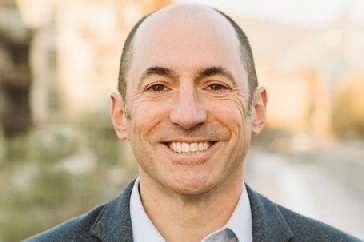At some point in our lives, we’ll be handed a little sheet of paper from our physician that has scribbled on it the medication we need, how much of it, and how often we should take it. These little slips of paper are power. They tell us that in order to get better, we need to go and get what was written down, take it as prescribed, and follow up as needed.
Prescriptions play a major role in health care delivery. Between physician office visits and emergency department visits there are over 1 billion drugs provided or prescribed each year. And despite the presence of technology allowing for e-prescribing, one survey found that most physicians still use paper to write down prescriptions for their patients. Oh, and don’t forget about fax machines! Those lovey pieces of technology that we thought were long gone? Well, they’re still used to send in prescriptions to places like pharmacies.
As a kid I recall my grandfather, a family physician in rural East Tennessee, having those prescription pads around his office. They were a professional calling card of sorts with his name clearly printed on the top and his entirely illegible scribble in the blank space below. In case you were wondering if his handwriting was only bad on the prescription pad, let me assure you that it applied to all facets of his life. Case and point: My mom used to have to read me birthday cards because he wrote them in some obscure hieroglyphic that I simply could not interpret.
Despite their legibility, these little slips of paper often contain vital information on them. For many of us, life saving medications are prescribed to keep us alive; for others, medications might be prescribed to help us get over that nasty infection. In the mental health space, there’s a ton of literature out there on the effectiveness of drugs, their side effects, and the reluctance of people to continue them once they start. And depending on the condition (e.g. depression and anxiety), research points to similar efficacy of psychotherapy vs. medication. One meta-analysis even found a “three-fold preference” of psychotherapy over medication despite medication being the dominant intervention often provided in medical settings. It is hard to talk about prescriptions without acknowledging some of the tensions that are out there around medications.
While there’s a lot here we can unpack around the role of medications, and perhaps one day I will, this got me thinking a lot about prescriptions and what we actually prescribe. More broadly, I started wondering what would happen if frontline providers used their prescription pads to prescribe things other than medicine that might help a person’s health and well-being. Of course, medicine should be prescribed when needed, but what prevents us from prescribing more than just the drugs? I mean we already know that doctors are the most trusted profession out there making it more likely we listen to most of what they recommend. Why don’t we get creative with this trust and use it to begin to prescribe other things that can help?
Here are some examples:
Social prescribing: In England it’s not uncommon for a General Practitioner (GP) to prescribe for their patient to get connected or involved in some local community activity. This could be anything from a garden club to swimming. The intent here is to have a more formal connection between the patient and their community, offering an opportunity for the patient to improve in their health and well-being. And while evidence continues to mature, there are some interesting findings that point to how this can help, albeit in a different way, the patient in their journey to good health.
Art prescribing: This past week I had the chance to talk to Chris Appleton, the CEO of Art Pharmacy. His organization helps connect patients directly to the arts. In some ways Art Pharmacy becomes the resource hub that frontline providers can use to offer their patients another way to find connection – this time through arts. From increasing a sense of belonging to the power of artistic expression, there’s a lot to be said about what the arts bring to our lives. I have written about art, music, and their power here before and wholly see us underutilizing this connection for our health.
Exercise prescribing: It’s no surprise that too many of us are inactive. The data show clearly the connection between a sedentary lifestyle and overall risk for mortality. Moving matters and is good for our health. Increase in physical activity has been associated with an improved mood; it’s good for both our body and our mind. Having a trusted provider offer up a prescription to swim more or walk more or even dance (!) could be the motivation some people need to get just a bit more active.
Legal prescribing: For many people, legal issues weigh heavily on them and their ability to achieve optimal health and well-being. Medical legal partnerships are one way to bring legal supports into health care settings like primary care. Similar to what we know about bringing mental health into primary care, having onsite legal services reduces the barriers that some people might face in seeking out and obtaining legal supports. What if you were at risk of being evicted? Had a loved one who was being deported? That prescription from your provider to legal counsel could be the best medication you ever had and help alleviate some of your stress allowing you to focus on other aspects of your health.
Or what about prescribing a cure for homelessness?
The list could go on. What prescription would you like to see your provider offer next time you are in their office? When we screen for things beyond just diseases, we learn that there are a lot of issues that trouble people and impact their health. There’s a tendency in health care to over- medicalize things – to distill them down into their most basic biological components. But the truth is, our health, is so much more than just that. For us to begin to make a more profound impact on population health, we are going to have to start to consider how we can “prescribe” new treatments or options that can help people in ways that maybe even they don’t quite know yet.
Benjamin F. Miller, PsyD, is past president of Well Being Trust, a national foundation dedicated to advancing the mental, social, and spiritual health of the nation. A clinical psychologist by training, Miller works at the intersection of policy and practice, ensuring that mental health and addiction is prioritized in communities across America. This column is reprinted by permission from Dr. Miller’s newsletter, “Mental: Fighting the fragmentation of mental health one policy at a time,” on Substack. https://mentalhealth411.substack.com/
Want to know more about the power of participatory medicine? Attend SPM’s Creative Learning Exchange, Advancing Health Equity Through Participatory Medicine. Virtual or in-person tickets are available here: https://www.eventbrite.com/e/advancing-health-equity-through-participatory-medicine-tickets-594076888967?aff=ebdssbdestsearch.







I frequently ‘prescribed’ things other than medications during my 4 decades as a practicing family physician. It seemed to add some credibility and was often a way to enlist family members in lifestyle changes that can be very hard to do without family support.
With the current eprescribing of something from a pcik list or drop-down and electronic transmission of a digital document to the pharmacy, this is less easy. When I retired, a few years ago, the only remaining prescription pads available for us were for Schedule 2 drugs, were sequentially numbered, and not usable for this.
Doing the collaborative note with the patient in real time (during the visit) meant that I could include things like hobbies, exercise, recreation, sleep in our agreed upon plan and send the patient home with a printec copy of the note, assessment, and plan.
Same concept, but adapted to a new context.